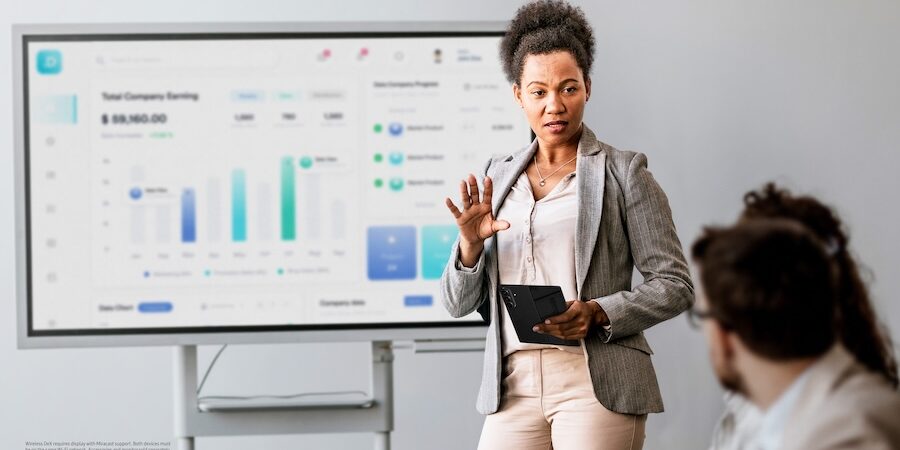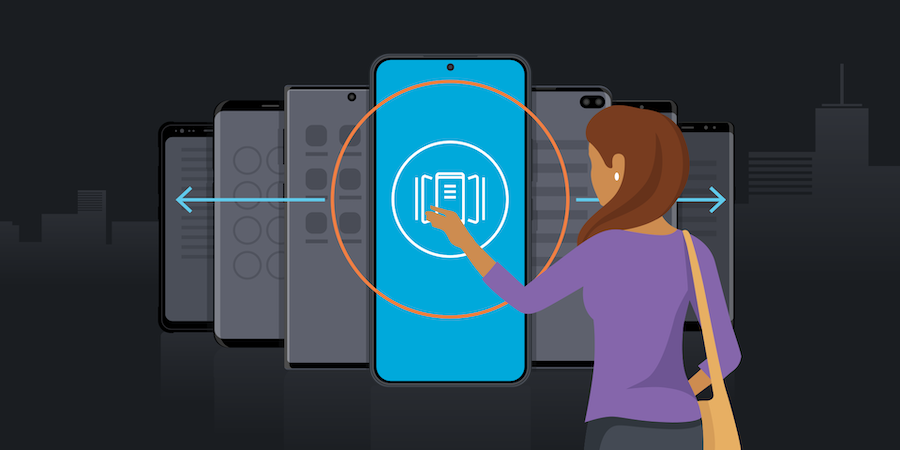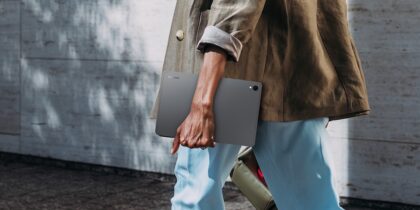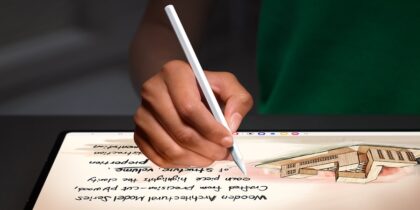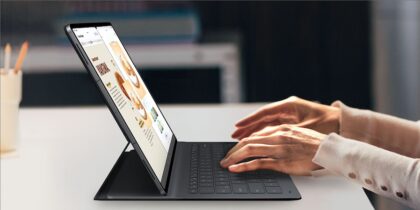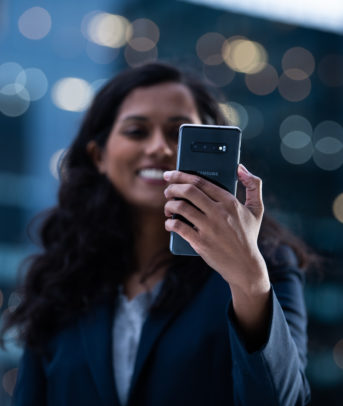Business executives and employees rely on mobile devices more than ever. As these devices become more powerful, they’re handling increasingly complex tasks. As a result, many productivity tasks once only possible on desktop PCs or laptops can now be performed on mobile devices.
Samsung’s newest models — the Galaxy Z Fold7, Galaxy Z Flip7 and Galaxy S25 series —demonstrate this trend. They feature powerful mobile processors, large displays and productivity applications and software that transform them into fully fledged mobile workstations.
As a result, business makers on the go no longer have to constantly switch between PCs and mobile devices. But, that doesn’t mean it’s all one or the other; both offer advantages and strengths. Understanding where and how the latest mobile devices match or exceed PCs can help create a smoother workflow and foster greater productivity. Here’s what you need to know.
How powerful are mobile devices today compared to PCs?
Comparing smartphone and laptop performance is complex because the devices run different applications, architectures and operating systems, and are optimized for different use cases, said Jim McGregor, founder and principal analyst at Tirias Research.
As a result, it’s important to keep in mind that benchmarks don’t tell the complete story in the comparison. Nevertheless, some tests show that Samsung’s newest devices are faster than some laptops. When Qualcomm announced the Snapdragon 8 Elite processor — incorporated into Samsung’s latest mobile devices — TechRadar noted that the chip beat the Intel Core Ultra 7 laptop one on single-core performance and came very close on multicore testing.
Other times, it depends on the task. The latest Samsung devices excel at single-threaded tasks designed for quick launches and responsiveness, such as switching between Instagram and Outlook. But for multithreaded use cases, such as rendering video and creating complex content, laptops maintain the advantage. A 2025 CNET survey illustrates the dichotomy, with 52% of respondents preferring laptops for creating and viewing documents and 66% using smartphones for organization tasks, such as making appointments and taking notes.
At best, Samsung’s latest mobile devices match or exceed the performance of laptops with processors that are several generations old, McGregor said. For workers using older laptops, their new Samsung phone may genuinely outperform their current laptop for some quick tasks.
How phones are becoming like laptops
A 2025 study by Ivanti shows that 44% employees have used their smartphones for work in the past year. However, 83% of U.S. adults still own a laptop, according to the CNET survey, and many still prefer it as their main work device, despite the upgraded features and functionality on mobile devices.
But the overlap is increasing. Most productivity apps, such as Google Workspace, are available on PCs and mobile devices alike. As a result, Samsung’s latest devices can do much of what traditionally requires a laptop, reducing how often business professionals need to reach for their bigger device.
Samsung Galaxy Z Fold7 is a case in point. It features 12GB of RAM and storage that matches laptops: 256GB, 512GB and 1TB. The Fold7 offers a 6.5-inch cover screen, but when users open it up, they get a tablet-like, 8-inch interior screen, which is perfect for multitasking. As in a laptop, colleagues can conference on one half of the screen while highlighting to a spreadsheet on the other half. The Galaxy Z Flip7 offers a similar scenario, but with 4.1-inch cover display and a 6.9-inch internal one.
Furthermore, Samsung’s Galaxy S25, Galaxy Z Fold7 — and for the first time, the Galaxy Z Flip7 — support Samsung’s DeX software, which turns the mobile device into a desktop by connecting to an external monitor and keyboard.
Where phones can outperform laptops
There are five key areas where Samsung mobile devices outperform laptops:
Always-on connectivity. Unlike laptops that rely on Wi-Fi, mobile devices have built-in 5G connectivity, ensuring the workforce can stay connected to the internet wherever there’s a phone signal.
Instant access and portability. Mobile devices are generally always with you and switched on.That means instant access almost everywhere. If workers are away from their desks, they can quickly pull out their device and launch apps to send a quick email or make a last-minute change to a presentation. That’s far more convenient and faster than retrieving and booting up a laptop.
Superior cameras. Mobile device cameras significantly outperform laptop ones, which is an advantage for those who need high-quality photos and video. The Galaxy Z Fold7, for example, features a triple rear camera system with a 200MP wide-angle camera, a 12MP ultra-wide camera and a 10MP telephoto camera. It also has two 10 MP front-facing cameras.
All-day battery life. Samsung devices boast a battery life that exceeds many laptops. The Galaxy Z Flip7, powered by Samsung’s Exynos 2400 chip, offers 31 hours of video playback on a single charge. The Galaxy S25 and S25+ deliver a similar number of hours of video playback, while the Galaxy Z Fold7 has 24 hours of video playback.
AI-powered productivity. Galaxy AI tools improve some kinds of productivity on Samsung devices. For example, “Interpreter” enables staff to speak with clients, customers and colleagues in another language in real-time. Generative Edit allows users to move, erase or enlarge objects in photos, while Audio Eraser removes unwanted background noise from videos.
How the Samsung ecosystem boosts performance
One great advantage of Samsung mobile devices is that they don’t work in isolation. They are part of an integrated Samsung Galaxy ecosystem with a bevy of devices, apps and software that enable seamless work and solid support. Through Quick Share, for example, users can instantly transfer files, photos and videos between their Samsung device and Galaxy Book laptop.
What's the best phone for your business?
Discover the smartphone most tailored to your business needs. Download Now
Security is part of this ecosystem, too. Samsung mobile devices and Galaxy Book laptops are protected by Samsung Knox, a multi-layered, military-grade security platform built into the device hardware. Knox also enables IT departments to remotely deploy, manage, secure and lock down devices in bulk.
Shouldering the load for success
The question isn’t whether smartphones can completely replace laptops. For most professionals, they can’t, yet. But Samsung Galaxy Z Fold7, Galaxy Z Flip7 and Galaxy S25 series phones are powerful enough to handle many tasks that once required a laptop, whether performing quick tasks, checking their calendar or reviewing documents. That helps shoulder the burden of a busy day, making sure employees are more productive and contributing to company success.
Learn more about the Samsung Business mobile solutions here.
